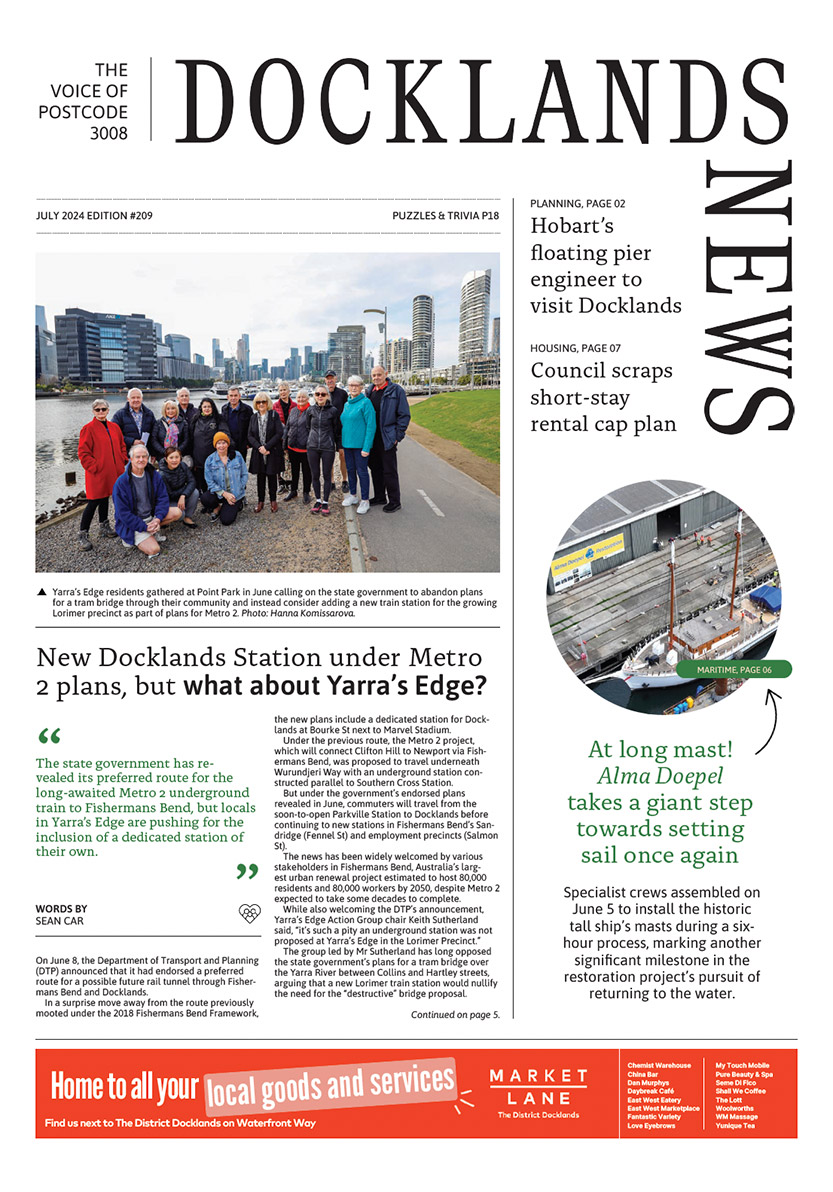Back to more flexible work
By Rhonda Dredge
The transition back to working in the office has begun but some managers are questioning the need to return to full-time desks, now that meeting technology is so well-established.
Employers have drawn up rosters for the return and others have let teams organise their own schedules.
Yet either way, corporate presence is likely to have a different shape in the future.
Dao and Nicole have returned to their desks in the Collins Square complex. Both are working two days a week and they’re dressed in casual gear.
They can’t believe how flexible arrangements are. They’ve figured out with their teams which days they’ll be coming in.
“I think that working through COVID I’ve been able to see times in the past where they’ve been reluctant to have people working from home,” Nicole said. “We’re still productive.”
“We still meet deadlines,” Dao agreed, but she said it was good to come to the office for some “adult time”.
There’s a perception that working mothers are snowed under with child-minding duties that affect productivity at home but according to research published in Frontiers in Psychology, the boundaries between home and work have already dissolved among workers who transfer knowledge as opposed to products.
“Knowledge workers take advantage of flexible working to craft unique, personal arrangements to suit their work, family, personal and community pursuits,” Dr Xi Wen Chen of RMIT wrote.
The improved efficiency of meeting technology, such as the use of Zoom, during the pandemic has been a major factor in accelerating this change.
Alice, a manager in intellectual property for a Collins Square tenant, said that the company’s customer relations team had returned to the office but everyone else was still working from home.
“We’re a global company so we’re not going back broadly until July,” she said.
Her team is based in Asia and Australia. “I’ve developed better relations with the team. There was a disparity between face-to-face and virtual. Everyone is on video now so we’re on an even footing.”
Kirsty works as a banking lawyer and her hours have always been flexible. The company wants her to go back 50 per cent of the time and there’s a roster.
The big difference after COVID, she said, is that if she was working from home before, she never told clients. “I told the kids to be quiet. Now if kids make a noise no-one cares. You can still be professional.”
She can even take her laptop to the park and check her email while her son plays with a friend.
Alice said there was a fine balance between having flexible work and being on the computer at 10pm at night.
“I feel like I’m rushing around less because I’m never racing home from work. If you try and work in a focused way it’s good from home. I’m still doing my work. What’s changed is my life around work,” she said.
According to the Walker Corporation, landlords at Collins Square, the more flexible work arrangements are not changing the profile of the complex.
“As the economy continues to bounce back post-COVID we have actually seen an increase in the level of interest from companies and businesses to lease more office space,” Emily Carroll, Head of Property Investments, said in a statement from the company.
“Collins Square is a thriving business hub that will continue to be the place where successful businesses depend on connection, collaboration and teamwork.”
“While our leasing partnerships are always kept confidential, we are proud to have over 30 long term lease arrangements in place equating to 100 per cent occupancy at Collins Square.” •

New Docklands Station under Metro 2 plans, but what about Yarra’s Edge?








 Download the Latest Edition
Download the Latest Edition